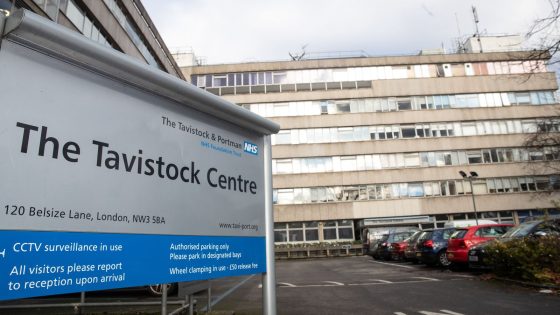Gender services for children have been “built on shaky foundations” with “remarkably weak evidence” to support treatments, according to a major review.
The “toxicity of the debate” is also not helping, with people afraid of discussing transgender issues openly, said author Dr Hilary Cass.
The paediatrician criticised the current system in her near-400-word report on gender identity services for children and young people.
Dr Cass makes 32 recommendations, including that gender services operate “to the same standards” as other children’s health services.
She also recommends “a holistic assessment” including a mental health assessment and screening for conditions such as autism.
The current policy on giving children testosterone or oestrogen from age 16 should also be urgently reviewed, according to Dr Cass.
She recommends “extreme caution” and “a clear clinical rationale for providing hormones at this stage rather than waiting until an individual reaches 18”.
Addressing young people, she writes: “I have been disappointed by the lack of evidence on the long-term impact of taking hormones from an early age; research has let us all down, most importantly you.”
A review of 50 studies on puberty blockers and 53 on hormone treatments – carried out for the report – found a “lack of high-quality research” into their use in young people.
“The reality is that we have no good evidence on the long-term outcomes of interventions to manage gender-related distress,” said Dr Cass.
The publication comes weeks after NHS England confirmed children would no longer be prescribed puberty blockers outside of research trials.
It’s also less than a fortnight since the much-scrutinised Gender Identity Development Service (GIDS) closed in London – with two new hubs to replace it.
The review was commissioned four years ago after a steep rise in the numbers seeking NHS help for gender issues.
There was particular concern over early medical interventions despite a lack of evidence on their use and long-term impacts.
Prime Minister Rishi Sunak welcome the “care and compassion” of the review, saying: “The wellbeing and health of children must come first.”
NHS England said it would now pause first appointments at adult clinics for teens under 18, as well as bringing forward its review of adult gender services.
‘Falling off a cliff edge’
Other recommendations include a “follow-through service” for 17-25 year-olds, with Dr Cass warning teenagers are “falling off a cliff edge” when it comes to care.
She also urged a “more cautious approach” for children than for adolescents when it comes to social transitioning – where someone might change pronouns, name, and clothing.
Dr Cass said it was also important to ensure parents “are not unconsciously influencing the child’s gender expression”.
The paediatrician said her review was “not about defining what it means to be trans, nor is it about undermining the validity of trans identities”.
However, she cautioned that strong feelings on trans issues were having a damaging effect.
She said experienced clinicians had at times been “dismissed and invalidated” and that young people had been “caught in the middle of a stormy social discourse”.
“There are few other areas of healthcare where professionals are so afraid to openly discuss their views, where people are vilified on social media, and where name-calling echoes the worst bullying behaviour. This must stop,” she wrote.
She warned that “polarisation and stifling of debate” would also hamper essential research in an area with “remarkably weak evidence”.
In response, NHS England said it had made “significant progress” towards establishing a “fundamentally different gender service for children and young people” based on Dr Cass’s earlier recommendations, as well as “extensive public consultation and engagement”.
An spokesperson said: “We will set out a full implementation plan following careful consideration of this final report and its recommendations, and the NHS is also bringing forward its systemic review of adult gender services and has written to local NHS leaders to ask them to pause offering first appointments at adult gender clinics to young people below their 18th birthday.”
Source Agencies




